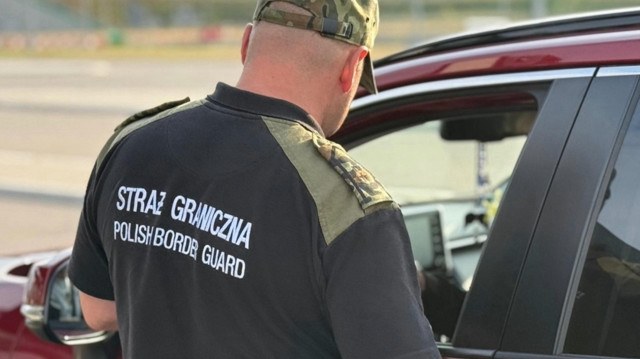
Business representatives concerned over disruptions to cross-border workforce and supply chains
German business representatives on Monday expressed growing concern over Poland's newly implemented border controls, citing potential harm to regional economies and cross-border cooperation.
Helena Melnikov, chief executive of the German Chamber of Industry and Commerce (DIHK), told Handelsblatt newspaper that feedback from local chambers of commerce has been worrying.
"When commuters at the German-Polish border can no longer reliably and punctually get to work, there's a danger they will permanently look elsewhere — with consequences for the skilled labor shortage in federal states like Brandenburg," she said.
According to DIHK, the controls are particularly affecting regional retail, border-area restaurants, healthcare sectors, and large industrial companies. "Companies need reliability and freedom of movement, not new barriers," Melnikov stressed.
Tens of thousands of Polish workers commute daily to German border cities and towns, benefiting from freedom of movement within the EU's Schengen area. The border controls are slowing traffic flow, raising concerns about travel delays and creating hurdles for the transportation of German exports through Poland.
Dirk Jandura, president of the Federation of German Wholesale, Foreign Trade and Services (BGA), echoed these concerns. "Isolation doesn't solve problems, it creates new ones: for supply chains, employees, and economic cohesion in Europe," he said.
Jandura acknowledged that border security must take priority when needed to prevent threats, but suggested that the current measures represented a regression to a model that many in Europe thought had been left behind. "Border controls should not be a political pressure tool," he emphasized.
Poland's border guards began temporary checks at the shared border with Germany on Monday. Since midnight, travelers have been checked at 52 border crossings, the Interior Ministry announced on X.
Poland's Interior Minister Tomasz Siemoniak stated that the controls were aimed at "those involved in the illegal smuggling of migrants across the border." The random checks will primarily target buses, minibuses, and cars with large numbers of passengers, according to Polish authorities.
Poland's government implemented these temporary border controls in response to Germany's own border measures to curb irregular migration. Several Polish politicians accused Germany of pushing illegal migrants out of their country and into Poland.
Both Germany and Poland are within the EU's visa-free Schengen area, but Berlin has been conducting controls at crossing points since 2023 to prevent irregular migration. Schengen states are permitted to reintroduce temporary border controls only in exceptional situations—such as during major international events or when facing a serious threat to public order.







